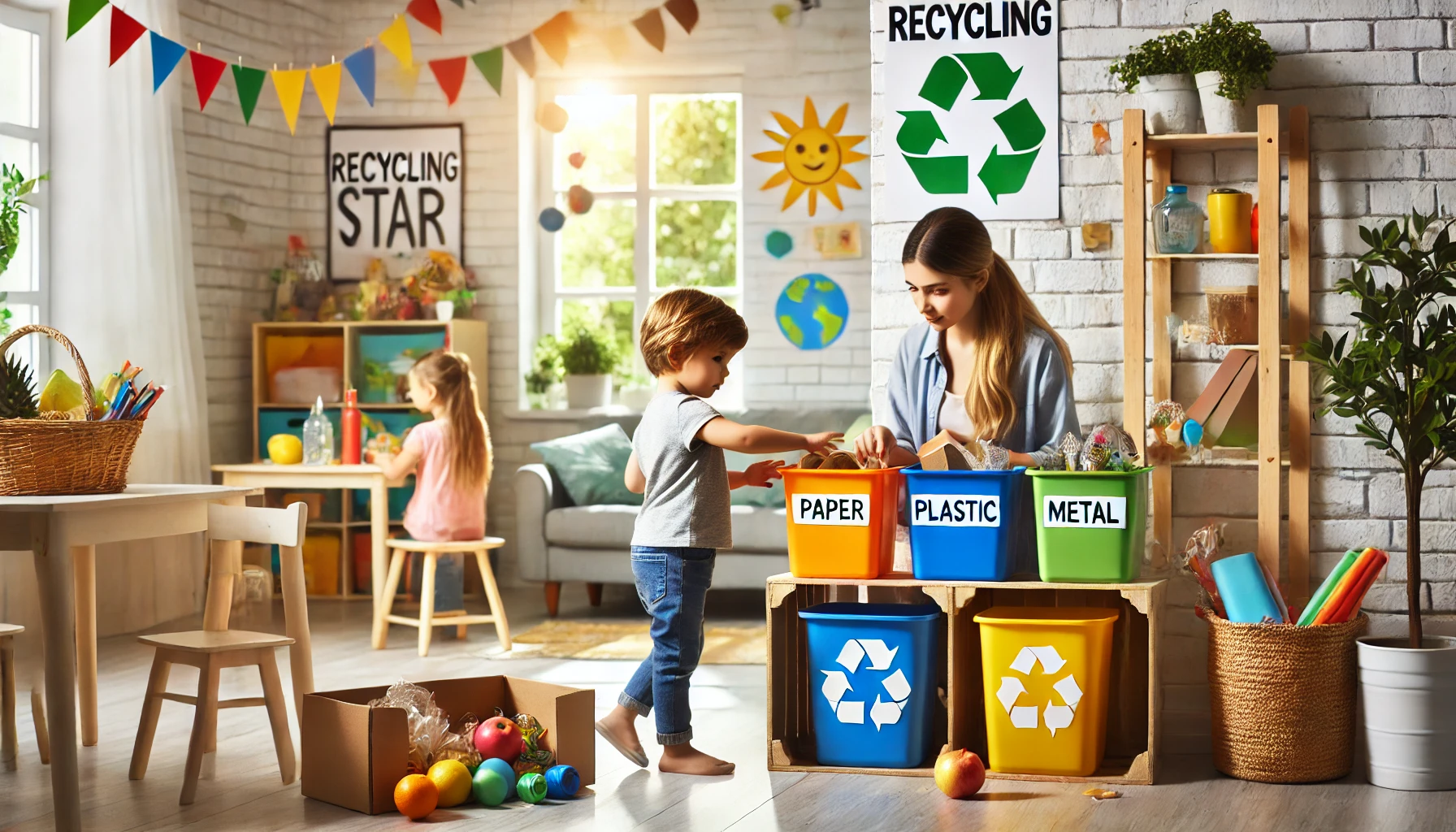How to Teach Young Children About Recycling and Waste Reduction
Teaching young children about recycling and reducing waste is a wonderful way to introduce responsibility and care for the planet. When kids learn simple ways to sort, reuse, and reduce, they start to understand that their everyday choices have an impact on the environment. Best of all, with fun activities and hands-on learning, these lessons become joyful and meaningful.
Why Recycling Education Matters for Kids
- Builds environmental awareness
- Encourages responsibility and good habits early on
- Fosters respect for the Earth
- Teaches practical, everyday life skills
- Helps children feel empowered to make a difference
1. Explain Recycling in Simple Words
Make it easy for young minds to understand.
Activity Idea:
- Say: “Recycling means turning old things into new things instead of throwing them away.”
- Use objects at home: show plastic bottles, paper, and cans.
- Ask: “What do you think happens to this bottle after we recycle it?”
What Kids Learn:
- That items don’t just “disappear” in the trash.
- The purpose of recycling.
- Curiosity about how things are reused.
2. Create a Colorful Recycling Station at Home
Make recycling visible and fun.
Activity Idea:
- Use colorful bins labeled with pictures for paper, plastic, metal, and compost.
- Let your child decorate the bins with stickers or drawings.
- Turn it into a sorting game: “Which bin does this go in?”
What Kids Learn:
- How to identify recyclable items.
- Responsibility in waste management.
- Hands-on participation in environmental care.
3. Read Books About Recycling and Waste Reduction
Stories bring concepts to life.
Activity Idea:
- Read books like Michael Recycle by Ellie Bethel or The Adventures of a Plastic Bottle by Alison Inches.
- Discuss: “What did the characters do to help the Earth?”
- Create your own recycling storybook together.
What Kids Learn:
- Emotional connection to recycling through storytelling.
- Real-world examples of environmental action.
- Inspiration for daily habits.
4. Make Recycling a Game
Games turn learning into play.
Activity Idea:
- Create a “recycling relay”: race to sort recyclables into the correct bins.
- Play pretend recycling truck: collect items around the house and deliver them to the right place.
- Use rewards like stickers for proper sorting.
What Kids Learn:
- Active participation in eco-friendly habits.
- Sorting and categorization skills.
- Joyful engagement with sustainability.
5. Upcycle Through Crafts
Show kids how to reuse creatively.
Activity Idea:
- Turn toilet paper rolls into binoculars or egg cartons into art palettes.
- Collect bottle caps for art projects.
- Celebrate creations: “Look what you made from recycling!”
What Kids Learn:
- The value of reusing materials.
- Creativity in sustainability.
- That old items can have new life.
6. Practice Reducing Waste Daily
Teach mindful consumption.
Activity Idea:
- Use reusable shopping bags, lunch containers, and water bottles.
- Involve kids in meal planning to reduce food waste.
- Teach: “We only take what we can finish.”
What Kids Learn:
- That reducing waste is just as important as recycling.
- How to make thoughtful choices.
- Habits that benefit the planet.
7. Go on a “Litter Walk”
Connect actions to the real world.
Activity Idea:
- Take a walk and collect litter safely (use gloves and supervision).
- Talk about how litter hurts animals and nature.
- Celebrate their efforts: “You helped clean our neighborhood!”
What Kids Learn:
- Community care and responsibility.
- Environmental impact of waste.
- Empowerment through action.
8. Celebrate Progress and Efforts
Positive reinforcement builds lifelong habits.
Activity Idea:
- Keep a “Recycling Star” chart at home.
- Reflect daily: “What did we recycle or reuse today?”
- Praise their efforts: “You’re helping take care of our Earth!”
What Kids Learn:
- That their actions matter.
- Motivation to keep practicing.
- Pride in environmental stewardship.
Final Thoughts
Teaching young children about recycling and reducing waste empowers them to become caring stewards of the planet. With colorful bins, creative projects, and positive encouragement, kids learn that their small actions add up to big changes. By making eco-friendly habits part of daily life, we help raise a generation that cherishes and protects the world they live in.
